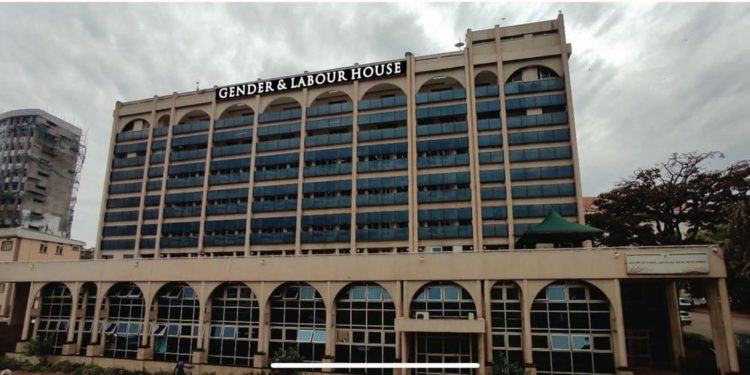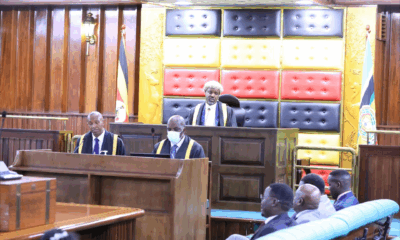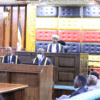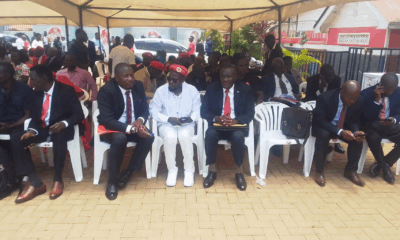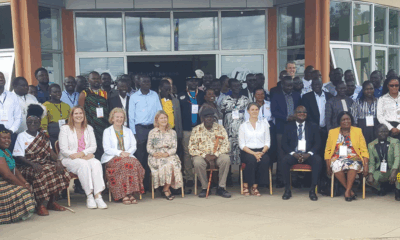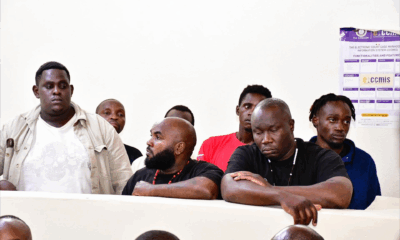Law
High Court Upholds Equity Bank’s Sale of Simbamanyo Properties Over $10 Million Loan Default
The High Court in Kampala has ruled that Equity Bank acted within the law when it sold two prime properties—Simbamanyo House and Afrique Suites Hotel—belonging to Simbamanyo Estates Limited to recover a defaulted loan amounting to $10 million.
Justice Harriet Magala, presiding over the matter, delivered the long-awaited judgment on July 25, bringing to a close a contentious legal battle that has stretched over a decade between Equity Bank and Simbamanyo Estates, once owned by prominent city architect Peter Kamya.
The case traces back to 2012, when Simbamanyo Estates acquired a $6 million syndicated loan from Equity Bank Uganda and Equity Bank Kenya to finance the construction of Afrique Suites Hotel in Mutungo and to clear a prior debt from Shelter Afrique. The financial arrangement was later expanded in 2017 when a $10 million bridge loan was issued, backed by a standby letter of credit from Equity Bank Kenya and Mauritius-based Bank One Limited.
Following a default on repayments, Equity Bank Kenya triggered the credit guarantee, activating a post-import finance loan with Equity Bank Uganda to recover the funds. The bank subsequently sold Simbamanyo House to Meera Investments, a company linked to businessman Sudhir Ruparelia, for UGX 18.5 billion, and Afrique Suites Hotel to Luwaluwa Investments in October 2020.
Kamya challenged the legitimacy of the debt and the subsequent sale of his properties, arguing that Equity Bank Uganda was not the designated lender and that the loan arrangements violated the Financial Institutions Act. He also claimed that no utilization request had been submitted for the disbursed funds.
However, in a detailed ruling, Justice Magala dismissed these arguments, stating that the utilization request was optional, and that the syndicated loan—facilitated through the foreign arm of the bank—was necessary to prevent Equity Bank Uganda from breaching its credit exposure limits.
The court further clarified that foreign bank lending is not illegal under Ugandan law as long as the funding is not raised through public deposits in Uganda. “The facility did not contravene the Financial Institutions Act,” the judge ruled.
This ruling is the latest in a series of legal defeats for Kamya. After the initial loss in the High Court, Kamya unsuccessfully appealed the decision in the Court of Appeal. In a last-ditch effort, he sought the intervention of President Yoweri Museveni, who, upon consulting with the Bank of Uganda and the Attorney General, advised him to pursue the matter through the courts—an avenue now exhausted.
With the High Court reaffirming the legality of Equity Bank’s actions, the ruling puts an end to one of Uganda’s most high-profile commercial property disputes in recent memory.
Legal analysts say the judgment reinforces the rights of financial institutions to recover loaned funds through asset disposal in cases of default, provided due process is followed.
“This is a landmark decision that upholds the sanctity of loan agreements and the enforceability of credit security,” one commercial lawyer noted.
Simbamanyo House, located in Kampala’s central business district, and Afrique Suites Hotel in Mutungo have since changed ownership and continue operating under their new proprietors.
Comments



